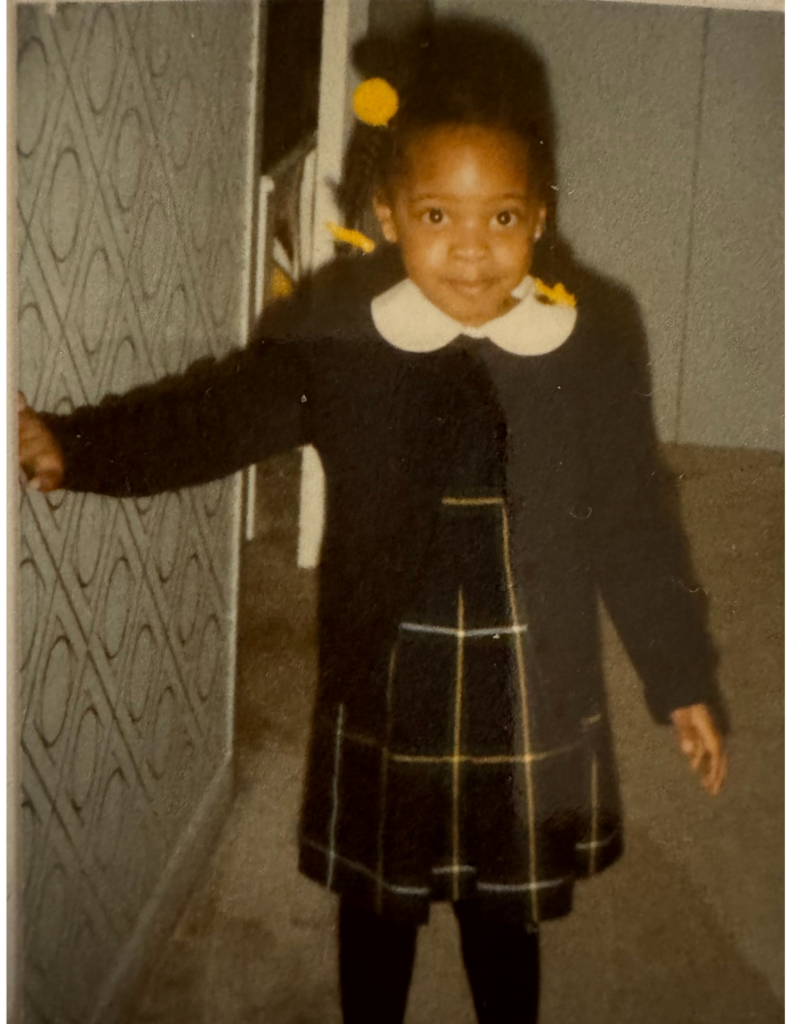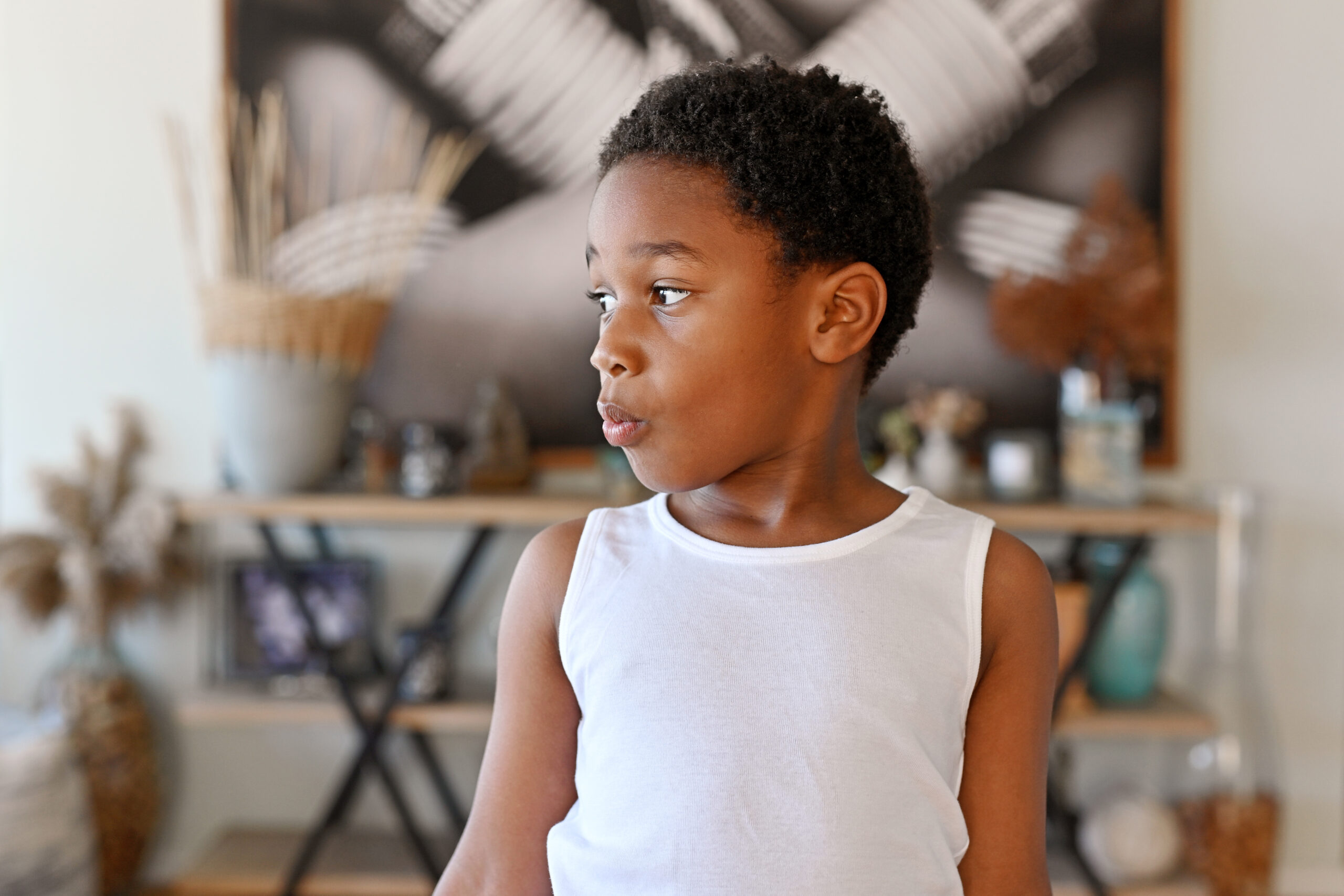I'm a Parent Educator and an Award-Winning Storyteller on a mission to fortify Black youth with the skills they need to imagine a better future for themselves and their communities.
Hi, I'm Jenile
Ready for a shift?
Try things The HueGo Way: an empowerment model that helps you lead with connection. Rooted in child development.
There’s your child, dressed in their freshly pressed uniform, standing at their school’s iron gates. This place, with its historic buildings and perfectly manicured lawns, is where you’ve been told they will thrive, gain access to endless opportunities, and be set on the path to success. For many, just reaching this gate feels like a victory. In reality it’s just the beginning.
Crossing the threshold into a world of higher expectations, academic rigor, and social complexity is a whole new journey that requires an equally significant level of support. It’s not enough to just open the door; you have to walk through it with your child, arm in arm, ready to face the challenges that lie ahead.
I know this because I lived it.

From time I was 3 years old until I graduated high school, private school was my world. I wore the uniforms, walked the immaculate hallways, and navigated the emotional battlefield of race, class, and expectations that define the Black private school experience.
Now as a parent myself, and a coach, I want to help prepare you to make that commitment by giving you a number of things to consider.
DON’T SEND KIDS TO PRIVATE SCHOOL IF YOU’RE NOT READY TO:
1. Prepare Your Child for Racial Isolation
One of the harshest realities Black children often face in private schools is being the only one—or one of very few—Black students in their class. The weight of racial isolation can be heavy, and if you’re not prepared to have ongoing, age-appropriate conversations with your child about race, identity, and the importance of self-worth, they may struggle not only with feelings of alienation, but with the tools to confront the kids of race-related conversations that will inevitably come up. It’s crucial that Black kids have the emotional tools to navigate these spaces confidently; to find strength in their uniqueness rather than feel diminished by it.
2. Advocate and Collaborate
Private schools can have rigid structures and deeply entrenched cultures that aren’t always inclusive or attuned to the needs of Black students. Whether it’s addressing microaggressions, ensuring access to culturally relevant resources, or confronting biased disciplinary practices, your role is not just to speak up but also build partnerships to see sustainable change at the school for your child and others.
3. Become a Part of the School Community
One of the reasons many parents choose private schools is the hope that their child will build meaningful, lifelong friendships and connections, but those require intentional effort and nurturing. This means going beyond surface-level interactions and fostering genuine connections within the school community. In my experience, parents can often compartmentalize school friends vs. “real” ones. But this separation doesn’t serve kids’ needs. By you as their parent getting involved, it not only helps your child feel more connected to the school but also feel more ownership over it. If you’re not ready to invest in these relationships and guide your child in doing the same, the social benefits you hope for may not fully materialize.
4. Educate the Educators
It’s not uncommon for private school staff and teachers to have limited experience working with Black children, which can result in misunderstandings and missed opportunities. This is something many of us are familiar with in everyday life, and often, we neither like nor have the bandwidth to constantly educate other adults. But you may still find yourself in the position of having to educate educators—explaining why certain cultural references matter, why hair and dress codes need to be more inclusive, or why a specific disciplinary action may carry racial undertones. Without fully stepping into that role as an educator within the school community, the change you’re hoping for might not materialize.
5. Build Your Child’s Emotional Resilience
The pressures of private school can be intense—academically, socially, and emotionally—for all children. As a parent, it’s essential that you help your child build emotional resilience. This means teaching them how to handle setbacks, how to assert themselves when they’re misunderstood, and how to stay connected to their sense of identity and worth, even when others might not see or value it. If you’re not ready to invest in their emotional well-being, the private school environment could become overwhelming.
6. Confront Economic Disparities
Private schools often bring together students from vastly different economic backgrounds, and your child may be exposed to wealth and privilege that can be jarring. This can lead to feelings of inadequacy or pressure to fit in, which can affect their self-esteem. As a parent, you must be ready to address these disparities head-on, helping your child understand that their worth isn’t tied to material possessions or social status. You’ll need to reinforce the values of integrity, empathy, and self-respect over superficial markers of success.
7. Create a Support System
Being a Black parent in a predominantly white private school can also be lonely. You may not have a built-in support network of other Black parents who understand the unique challenges you’re facing. It’s crucial to seek out and create your own support system—whether it’s through connecting with other Black families in the school, finding mentors who can guide your child, or joining broader networks focused on supporting Black children in private education. If you’re not ready to actively seek out this support, you may find the journey more difficult and isolating.
8. Challenge Curriculum Bias
Private schools often pride themselves on a classical education, but this can sometimes mean a curriculum that overlooks or marginalizes Black history, culture, and contributions. As a parent, you must be willing to challenge curriculum bias and advocate for a more inclusive education that reflects the diversity of experiences and perspectives your child needs to see. This might involve working with teachers to bring in supplementary materials or pushing for curriculum changes that better reflect the world your child lives in.
9. Navigate Code-Switching
Your child may find themselves having to navigate between different cultural worlds—the one at school and the one at home. This code-switching can be exhausting and confusing, especially for young children. As a parent, you’ll need to help your child understand how to maintain their cultural identity while also fitting into the school environment. This means having ongoing conversations about race, culture, and identity, and giving them the tools to navigate these transitions with confidence. If you’re not ready to support them through this complex process, they may struggle with feelings of inauthenticity or cultural dissonance.
10. Reinforce Their Cultural Identity
In an environment where they might not see many others who look like them, it’s crucial that you actively reinforce your child’s cultural identity. Sometimes we can give kids what we didn’t have (like a private education) and forget to give them what many of us did have, which are experiences that reinforced pride. You’ll need to find ways to integrate their cultural experiences into their daily life, through books, media, community events, and more. If you’re not ready to put in this work, your child may struggle with a sense of belonging and self-worth.
HOW TO GIVE KIDS THE SOCIAL EMOTIONAL SUPPORT THEY NEED
If you’re willing to be an advocate, to educate and empower your child in the face of these challenges—then private school can be a place where they not only survive but thrive.
And to help you on this journey, I’ve created a free printable outlining the essential principles for empowering Black children in any educational environment. These principles will give you the tools you need to support your child, build their resilience, and ensure their success, no matter where they are. Download it now, and take this small step towards giving your kids the strength, confidence, and emotional support they need to thrive, no matter the environment.

how to empower kids and shape the world we all deserve
Get your free guide
Farm-to-table jianbing kickstarter, mixtape taxidermy actually scenester. Asymmetrical tattooed locavore meggings YOLO organic pabst forage.